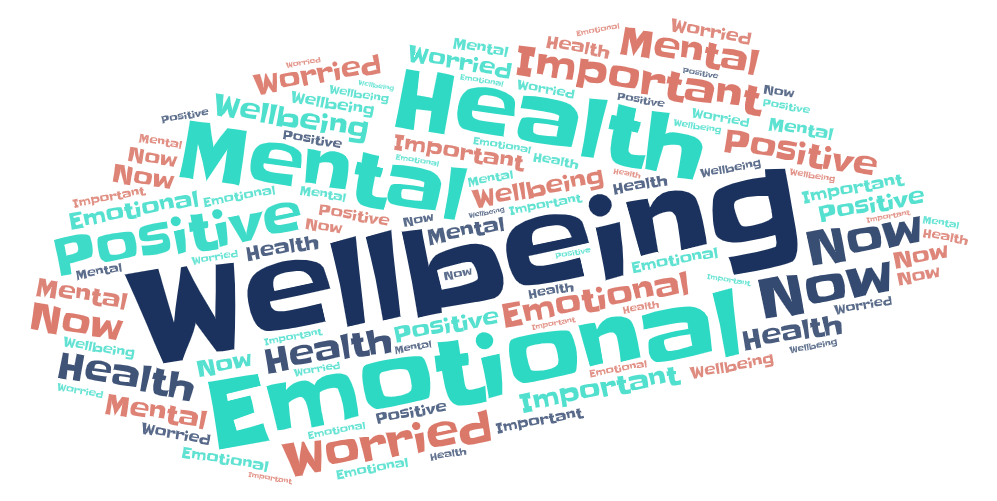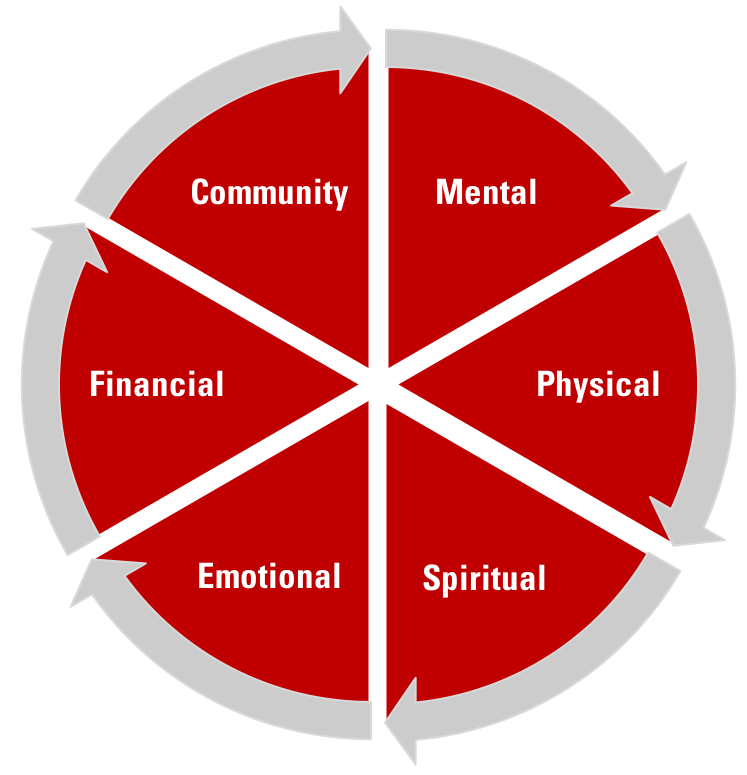Contents
What Is Well-Being?

Well-being is a state of complete physical, mental and social well-being. It means that you are experiencing good health in your body, peace of mind with positive emotions like happiness and pleasure; feeling satisfied with your life; having self-fulfillment which is the realization of personal potentials. Well-being requires a balance between all areas for example work/life balance or financial security while caring about yourself too.
This results from having six dimensions namely psychological wellness, people’s satisfaction with their lives, healthy behaviors including exercise habits, quality sleep at night time without waking up frequently during sleep hours due to illness or stress-related reasons, environmental conditions such as pollution levels in the air, etc., strong relationship ties both family members and friends plus social support, and financial security.
Well-being is not just about having a positive outlook on life or being happy but also includes social responsibility to the community as well as environmentally friendly practices that have been proven to be good for our health both physically and mentally. In order words, we need material things such as wealth in order to live comfortably with all the above six dimensions met without going overboard which can lead up to greediness thus leading us towards maladaptive behaviors like addiction ruining our lives both personally and emotionally.
Types of Well-Being

It’s not easy to maintain balance in life. There are so many different aspects that you need to juggle, and it can be hard to stay on top of everything. It is important that you take time for yourself every day. You can manage this with different types of well-being.
These are some types of well-being :
Physical Well-Being
 This well-being refers to the health of an individual.
This well-being refers to the health of an individual.
Physical wellness is important because it impacts other areas in your life.
For example, if you are not physically healthy then you might be more irritable or exhausted than usual which can impact how well you do at work and relationships with family members.
Social Well-Being
 This type of well-being refers to having strong social connections within a community whether that’s through friends, family, coworkers, etc. Having strong social ties has been shown to positively affect mental health by reducing stress levels and encouraging positive thinking/behaviors. It also helps people feel like they belong somewhere.
This type of well-being refers to having strong social connections within a community whether that’s through friends, family, coworkers, etc. Having strong social ties has been shown to positively affect mental health by reducing stress levels and encouraging positive thinking/behaviors. It also helps people feel like they belong somewhere.
Financial Well-Being

Financial wellness revolves around money management strategies such as budgeting expenses; saving for retirement; etc. Many people struggle with financial wellness because they don’t have a plan for their money. If you know how much money is coming in and out of your account on a monthly basis then it will be easier to manage your finances!
Emotional Well-Being
 This type of well-being refers to the way that an individual thinks about emotions or feelings. People who are emotionally healthy strongly believe that all feelings (positive, negative, happy, sad) should be expressed instead of repressed. This form of coping skills helps individuals feel better mentally and physically by reducing stress levels and encouraging positive thinking/behaviors. It also helps people feel like they belong somewhere which leads back into social wellbeing.
This type of well-being refers to the way that an individual thinks about emotions or feelings. People who are emotionally healthy strongly believe that all feelings (positive, negative, happy, sad) should be expressed instead of repressed. This form of coping skills helps individuals feel better mentally and physically by reducing stress levels and encouraging positive thinking/behaviors. It also helps people feel like they belong somewhere which leads back into social wellbeing.
Mental Well-Being

This type of well-being is self-explanatory. Mental wellness refers to the psychological state and mental health of an individual which includes how people think, feel, behave as a result of their thought processes and responses to emotions/feelings. If you are actively engaging in activities such as meditation or deep breathing then it will reduce stress levels by encouraging positive thinking/behaviors!
Spiritual Well-Being
 This form of wellbeing refers to having a strong connection with something beyond yourself whether that’s God(s), nature, etc. Having this sense of belongingness has been shown to positively affect mental health because individuals believe they have a purpose on earth; affecting stronger social ties within your community (friends family coworkers). Moreover, connecting with something greater than yourself helps individuals feel more connected to the universe and can reduce stress levels.
This form of wellbeing refers to having a strong connection with something beyond yourself whether that’s God(s), nature, etc. Having this sense of belongingness has been shown to positively affect mental health because individuals believe they have a purpose on earth; affecting stronger social ties within your community (friends family coworkers). Moreover, connecting with something greater than yourself helps individuals feel more connected to the universe and can reduce stress levels.
Workplace Well-Being

Workplace wellbeing is what you would expect it to be. It refers to the well-being in a workplace environment including physical, social, emotional, etc… For example, if your office has high levels of stress then individuals are more likely to have mental health issues such as depression or anxiety because they are constantly being exposed to negative emotions/thoughts.
Factors Affecting Well-Being

These are some of the factors affecting well-being:
Relationship With Partner
Having a strong connection with a romantic partner has been shown to positively affect an individual’s well-being because it fosters feelings of love and affection which have been associated with increased happiness. Moreover, having close relationships within your family is important too! If you don’t feel like you belong in your own home then it will be hard for you to practice self-care skills such as meditation or taking time for yourself when things get tough.
Employment Status
In short, this factor refers to whether someone currently has a job or not. If an individual does not have stable employment they are likely to experience financial stress factors that can negatively impact their mental health by increasing levels of depression and anxiety; decreasing their sleep quality; etc.
Social Ties and Social Support System
Having close ties with friends, family, or a partner is integral to an individual’s well-being. Moreover, having strong social support systems and good relationships within your community (friends/family) will increase self-esteem levels which in turn increases one’s happiness! If you don’t have anyone to confide in when something upsetting happens then it can affect the way that you think about yourself causing low self-esteem. Providing emotional support such as listening without judgment has been shown to positively impact individuals by reducing their stress levels! This form of coping skills helps individuals feel better mentally and physically by increasing feelings of love and affection associated with increased happiness. Furthermore, having a support system will help you feel like you belong somewhere which leads back to social wellbeing!
Enough Money
As mentioned above, having stable employment is important for decreasing financial stress. In addition, enough money to pay your bills will reduce the amount of stress you experience as well as increase feelings of peace because individuals have a sense that they are secure and “can take care” of themselves!
Healthy Diet
A healthy diet can be defined by eating whole foods such as vegetables/fruits/nuts which help maintain mental health because these foods contain antioxidants that fight off free radicals in our body caused by oxidative stress which has been linked with depression. Moreover, exercise helps decrease levels of anxiety because it stimulates positive thinking while encouraging an individual to release dopamine (the feel-good neurotransmitters).
Self-Care Skills
This factor refers back to whether an individual practices self-care skills such as meditation, mindfulness, etc… If someone does not practice these types of coping mechanisms then it can lead to increased levels of stress and anxiety because this form of coping helps individuals feel a sense that they are in control. Furthermore, practicing self-care is integral for well-being because when an individual feels like they have the power to take care of themselves (emotionally/physically) then their wellbeing will be higher than if they did not believe that about themselves!
Sleep Quality
Getting enough sleep every night is important for decreasing physical symptoms associated with depression which include lack of energy; weight gain; impaired memory; losing interest in hobbies; reduced sex drive among others! In short, having healthy sleep patterns is important for decreasing the severity of mental health illnesses.
Benefits of Well-Being

These are some of the benefits of well-being:
Improves Life Satisfaction
Well-being can improve life satisfaction by making individuals feel empowered and confident in their lives. For example, if you are financially secure then it will be easier to make decisions. These will positively affect your happiness. This is because you know what kind of lifestyle is within your reach.
Improves Mental Health
Well-being has been shown to reduce stress levels which can lead to improved mental health like depression or anxiety because the body’s inflammatory response to stress doesn’t get activated. Furthermore, having strong social ties leads individuals to feel less lonely; reducing feelings of isolation; improving self-esteem/self-worth all lead back into mental wellbeing (reduce symptoms). Lastly, spiritual well-being helps people find meaning in their lives which reduces depressive symptoms over time(getting rid of these negative thoughts and replacing them with positive ones).
Increases Productivity
Well-being is important because it helps individuals feel like they belong somewhere whether that be at work or home! If you are happy in your environment then it will increase productivity levels which leads to higher revenue for companies. In addition, increased social ties can lead to improved creativity/innovation. This depends on the type of job (ex: office vs. warehouse worker).
Improves Physical Health
Well-being is important because it helps reduce chronic diseases. Individuals who are emotionally healthy have been shown to be more proactive about their health by eating healthier and exercising regularly.
Helps Individuals Make Better Decisions
Well-being helps individuals make better decisions by feeling confident in themselves which leads to making healthier choices! For example, if you are financially stable then it will be easier for you to say no to unhealthy food because you know where your priorities lie. Moreover, well-being can help people find meaning/purpose in their lives which reduces depressive symptoms over time (getting rid of these negative thoughts and replacing them with positive ones).
Improves Your Overall Life Satisfaction
Having increased self-esteem makes life feel easier because everything seems doable. Individuals who have high levels of mental well-being have been shown to have more control over their future so they live a happier life overall. This is important for children growing up as well because it will help them make healthier decisions in the future which can lead to better life satisfaction.
Conclusion
Achieving well-being is a lifelong process, and you can start by practicing self-compassion. If the past has been particularly difficult for you—or if it feels like your world might be crumbling down around you today—try to cut yourself some slack. You are not alone in this experience, but there are things that work to make life better again. One of those is practicing self-compassion with intentionality.
The benefits of well-being are extensive and far-reaching. If you want to be happier, healthier, more productive, or better at your job; if you wish for a stronger marriage or family life; desire improved mental health – the first step is self-care. Don’t wait for change. Act now and take control of your own destiny by starting on this journey towards wellness today.
If you are looking for affordable Online Counseling MantraCare can help: Book a trial therapy session


